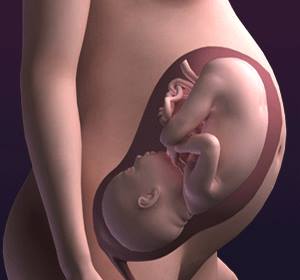
Every expectant mom knows there are certain foods that should be avoided during pregnancy to protect the health of their unborn baby. The list may always be controversial, but you can always speak to your doctor.
SHARE!
Pregnant women should avoid:
1. Liver and liver products: These foods are very high in vitamin A, and too much vitamin A can harm the unborn child.
Pregnant women should also avoid supplements containing vitamin A, including fish liver oils, except if you are advised to take these by your doctor.
2. Raw or undercooked Meat: Uncooked seafood and raw or undercooked beef or poultry should be avoided in pregnancy because of the risk of contamination with coliform bacteria, toxoplasmosis, and salmonella.
3. Unpasteurized Dairy Foods: These are best avoided in pregnancy. These foods are prone to Listeria monocytogenes, the bacteria that causes listeriosis, which may result in miscarriage, stillbirth, or other serious health problems.
4. Processed meats like Hot Dog: Many processed meats contain listeria. Listeria has the ability to cross the placenta and may infect the baby leading to infection or blood poisoning, which can be life-threatening. Make sure that any milk you drink is pasteurized.
5. Unwashed Vegetables: Vegetables are safe to eat, however, it is essential to make sure they are washed to avoid potential exposure to toxoplasmosis, which can be very dangerous to your baby. Don’t use soap to wash produce. Instead, scrub the surface with a small vegetable brush. Cut away any bruised areas, because these may harbor bacteria.
6. Raw Eggs: Avoid raw or undercooked eggs and any foods that contain them, such as homemade mayonnaise.
Make sure that eggs are thoroughly cooked until the whites and yolks are solid. This prevents the risk of salmonella food poisoning. A strain of salmonella, called S. typhi causes typhoid fever.
7. Cheese: Cheeses like this are made with mould and can contain listeria bacteria that cause listeriosis. Although an infection with listeria is rare, even a mild form of this infection in a pregnant woman can lead to miscarriage, stillbirth or severe illness in a newborn baby.
8. Certain Seafood and Fish: Large fishes such as swordfish, shark, tilefish, and king mackerel have very high concentrations of mercury, compared to other fish. Mercury is a by-product of coal-burning plants that interferes with the normal development of a growing child's brain and nervous system.
Fishes such as Tilapia, Crabs, Croaker and Shrimps have lowest mercury levels and are safe for consumption.
9. Herbal Teas and Supplements: Herbal teas are caffeine-free, but their safety is unclear when you’re pregnant. So it’s better to avoid them. Many supplements such as St John’s worth and gingko biloba
10. Caffeine: Although most studies show that caffeine intake in moderation might be okay, there are others that show that caffeine intake may be related to miscarriages. Avoid caffeine during the first trimester to reduce the likelihood of a miscarriage.
11. Beware Fresh Juice: Fresh-squeezed juice in restaurants, juice bars, or farm stands may not be pasteurized to protect against harmful bacteria, including salmonella and E. coli. Some markets also sell raw, unpasteurized juice in the refrigerated case -- look for the required warning label, and steer clear. Pregnant women should opt for juice that is pasteurized. Juice in boxes and bottles on your supermarket shelf is also safe.
12. Alcohol: You already know that heavy drinking during pregnancy can lead to serious birth defects. What you may not know is that even small amounts of alcohol could be harmful. No amount of drinking has been found to be safe during pregnancy, so it's best to avoid all forms of alcohol.
13. Avoid tobacco smoke: Smoking is extremely harmful to your unborn baby (as well as to yourself) and must be completely avoided. In fact, it’s so harmful, that pregnant women should even avoid other people’s smoke.
When you smoke, your baby gets less oxygen, which can cause your baby to grow more slowly and gain less weight. Tobacco smoke has also been linked to preterm labor and other pregnancy complications.